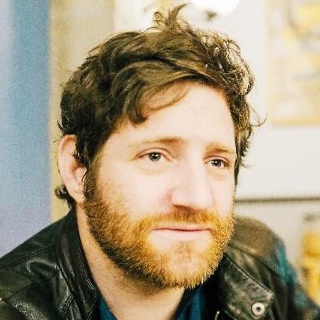
News

Humus with Hamas: what is the ANC thinking?
BENJI SHULMAN
The ANC has a long history of co-operation with the Palestinians. However, it has been with the Fatah faction connected with the Palestinian Authority (PA) located in the West Bank, which is Hamas’s rival.
The South African government supports the PA materially and diplomatically. It even recognises the Palestinian embassy here, which is funded in part by South African taxpayers.
Several years ago, the South African government invited PA President Mahmoud Abbas for a full state visit to the country, bilateral agreements were signed, and a commission of joint co-operation was established.
Although the ANC has had an informal liaison with Hamas for a long time, an official visit to the ANC in 2015 signalled the ramping up of the party’s relationship with the movement.
It wasn’t an official state visit, but Hamas leader Khaled Mashal received red carpet treatment during his stay. He was introduced to many of the important players in the country’s political matrix, including then President, Jacob Zuma.
This latest visit to the ANC’s parliamentary caucus and Hamas’s presence at the party’s policy conference last year suggest an expansion in ties.
ANC Party Whip Jackson Mthembu cast the visit as a discussion about humanitarian aid, and was careful to say that the ANC was not choosing one Palestinian faction over another. Clearly, however, there has been a shift in ANC thinking, which is being driven by a number of factors.
While the PA co-operates with Israel on security behind the scenes in the West Bank, Hamas’ frequent violent confrontations with the Israeli state have enhanced its reputation in the ANC’s eyes as a defender of Palestinian people.
The PA has international standing at institutions like the United Nations (UN). This means that it cannot be ignored, but the view inside the ANC seems to be that Hamas should also be given a seat at the table. This is important for Hamas, which is trying avoid international isolation, having recently lost a condemnation resolution at the UN.
This development also dovetails with a trend in ANC foreign policy of growing the country’s relationship with Iran. When sanctions on Iran were initially lifted, several high-level delegations visited the Islamic Republic. Guests on these tours have included Maite Nkoana-Mashabane, the then Minister of International Relations and Cooperation, as well as then Deputy President Cyril Ramaphosa. The strengthening of Hamas, which Tehran supports, can be seen as a natural result of these engagements.
Apart from international concerns, there are also strong domestic factors driving the Hamas visit. The Boycott, Divestment, Sanctions movement, and particularly its more Islamist affiliates, has never been particularly enamoured with the more secular-minded, even conciliatory Fatah.
As a result, it has been pushing for better relations with extremist groups like Hamas for nearly a decade. It has been abetted in this process by the extreme left wing of the ANC, which would like ties between Israel and South Africa to be severed in their entirety.
The Hamas visit helps to fuel already strained relations between Pretoria and Jerusalem, and strengthens extremist attitudes inside the ANC.
With a national election coming up next year, the move also plays well with conservatives in the Muslim population who live in the Western Cape. The province is run by the Democratic Alliance, and is the only one in the country not controlled by the ANC. Since the ruling party’s loss of control of the Western Cape in 2009, provincial officials of the ANC have ramped up anti-Israel sentiment. This is used as a means to gain the support of this constituency. At times, the strategy has become ugly, and several ANC officials have had cases brought against them for inciting anti-Jewish hate speech.
So what does this visit mean for South African policy regarding Hamas in the future? In the short term, Hamas’ supporters will hope it goes a small way toward reducing the group’s isolation in the international community.
They will also hope that it starts to erode the ANC’s connection with Fatah positions. The memorandum of understanding signed between Hamas and the ANC supports, for example, a full boycott of Israeli products, which is not a public Fatah position.
In the long term, however, they will hope that this visit serves as a basis for the ultimate goal of getting the South African state to adopt Hamas’ maximalist positions by ceasing diplomatic ties with Israel, and removing South Africa as potential supporter of peace in the region.
- Benji Shulman hosts the ‘New Blue Review’ on 101.9 ChaiFM focusing on Jewish current affairs and culture.




